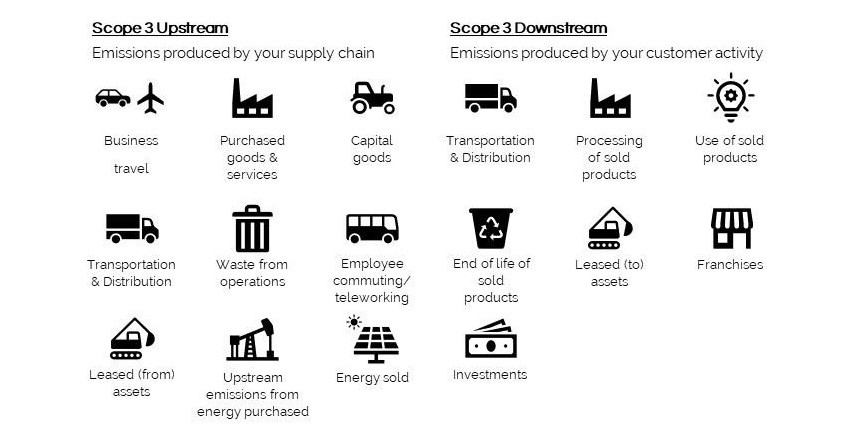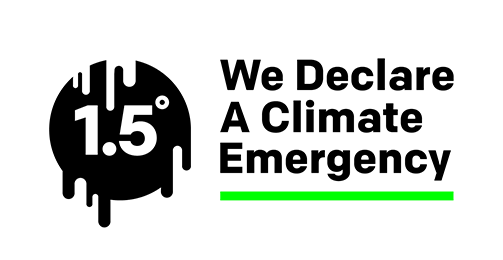Send a message 0333 344 5890 |
- Home
- Knowledge
- Learning Hub
- What are Scope 3 emissions?
What are Scope 3 emissions?
Any business that is seeking to reduce their greenhouse gas emissions must first capture accurately their current carbon footprint.
At Go Climate Positive, we use the Green House Gas (GHG) protocol Corporate Accounting and Reporting Standard, which categorises the emissions generated by an organisation into three types which they call Scope 1, Scope 2 and Scope 3.
Scope 1 emissions are essentially all the emissions that are directly owned or controlled by a company, for example, those released by company-owned facilities or vehicles, while scope 2 emissions are the indirect emissions- from the generation of purchased energy, for example- that power these facilities.
Scope 3 emissions, meanwhile, which can also be referred to as Value Chain Emissions, represent all the emissions that originate from sources that aren’t owned or controlled by the organisation but occur because of its relationship with other organisations in the production, distribution, use and eventual destruction of its products and services.
Scope 3 emissions therefore incorporate the emissions from the upstream and downstream activities of an organisation that are not already captured in scope 1 and 2.
How to measure scope 3 emissions
To calculate the carbon footprint of any value chain, at Go Climate positive, we implement the Value Chain (Scope 3) standard. Released in 2011, the Scope 3 Standard is the most widely used, internationally recognised standard in the world. It accounts for emissions from 15 categories of upstream and downstream activities and ensures consistency in approach and reporting that encompasses a wide scope of emissions within a corporate value chain.
While each category is comprised of multiple activities that each result in emissions, the 15 categories are designed to be mutually exclusive, such that, for any one reporting company, there is no double counting of emissions between categories.
We select all the relevant categories to calculate the contribution made by your value chain to your overall carbon footprint.
Upstream scope 3 emissions are:
1. Purchased goods and services
2. Capital goods
3. Fuel and energy-related activities (not included in scope 1 or scope 2)
4. Upstream transportation and distribution
5. Waste generated in operations
6. Business travel
7. Employee commuting
8. Upstream leased assets
Downstream scope 3 emissions are:
9. Downstream transportation and distribution
10. Processing of sold products
11. Use of sold products
12. End-of-life treatment of sold products
13. Downstream leased assets
14. Franchises
15. Investment

In fact, the majority of an organisation’s total corporate emissions may indeed come from a combination of these Scope 3 sources, which are often the result of activities from assets owned or controlled by other businesses.
The breadth and detail of the Scope 3 categories, above, does cause a large degree of crossover between organisations in a value chain. But, emission reduction throughout the entire product or service life cycle is an important component of achieving global climate goals and therefore companies need to assess the impact of their entire value chain emissions and identify where to focus their carbon reduction activities in order to get a truly meaningful outcome.
About Go Climate Positive
Go Climate Positive are expert carbon coaches, able to work with you to take the confusion out of scope 3. We baseline emissions, develop carbon reduction plans, and provide resources to engage your supply chain in a developed but digestible manner.
Get in touch today to find out more about our options for businesses looking into scopes 1, 2, and 3 of net zero.
Written by Eoin McQuone
Eoin (pronounced like “Ian”) is the Chief Carbon Coach and founder of Go Climate Positive, and a Practitioner member of IEMA (the Institute of Environmental Management). Eoin says, “Sustainability is no longer a ‘nice thing to do’, it is business critical. My goal is to make it accessible and affordable for every business, however big or small, no matter their market sector.” |




